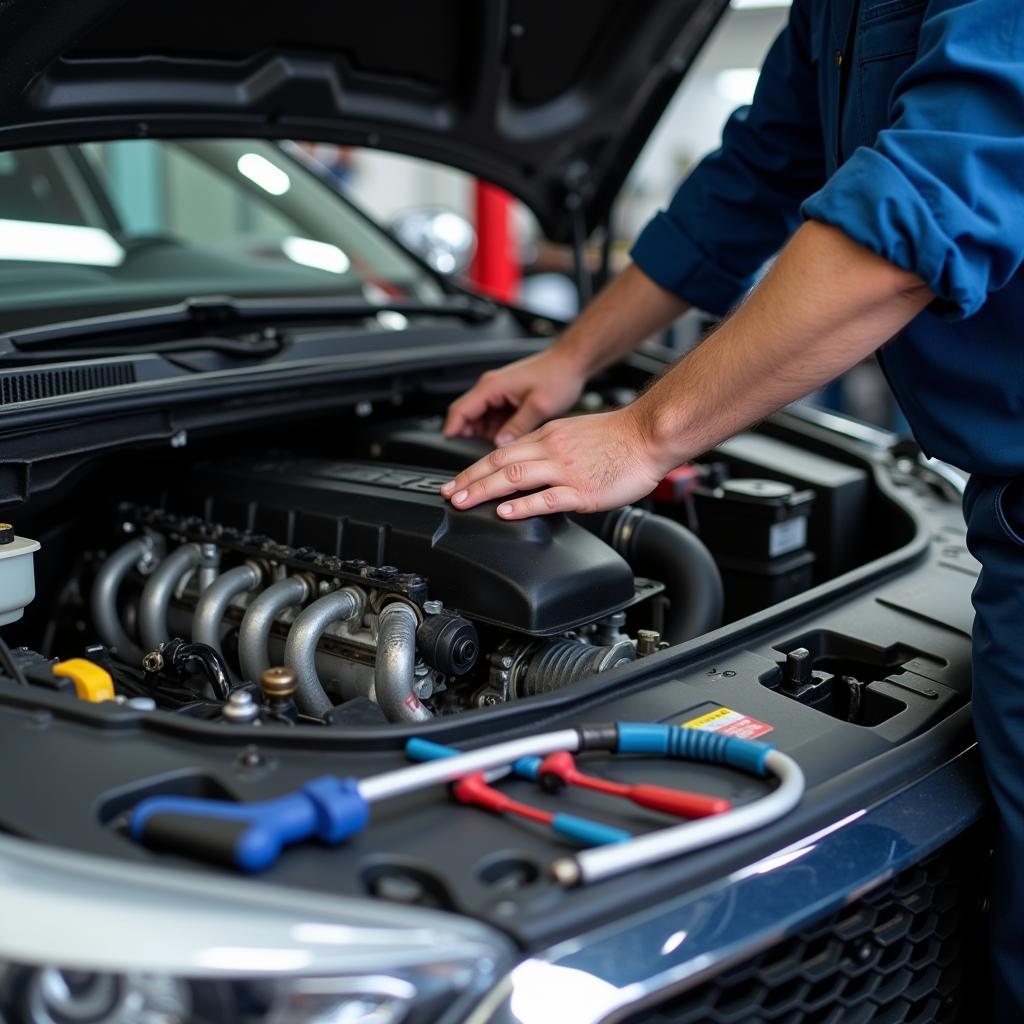Regular car servicing. It’s one of those things that many car owners dread, mainly due to the perceived cost and inconvenience. However, understanding the crucial role regular maintenance plays in your car’s health, performance, and even your safety can completely shift your perspective.
Why is Car Servicing Non-Negotiable?
You wouldn’t skip a doctor’s appointment when you’re unwell, right? Your car, much like your body, needs regular checkups to ensure everything is running smoothly.
Here’s why car servicing is non-negotiable:
-
Safety First: Regular servicing identifies potential issues before they escalate into dangerous problems. Worn brakes, faulty lights, or bald tires can be easily detected and rectified, keeping you and your passengers safe on the road.
-
Prolonging Your Car’s Lifespan: Think of car servicing as preventative healthcare for your vehicle. Regular oil changes, filter replacements, and fluid top-ups prevent premature wear and tear, ultimately extending your car’s lifespan.
-
Optimum Performance: A well-maintained car simply performs better. Regular tuning, fluid checks, and part replacements ensure your engine runs efficiently, offering better fuel economy and a smoother ride.
-
Maintaining Value: A car with a comprehensive service history holds its value significantly better. Potential buyers are more likely to invest in a well-maintained vehicle, making your car more desirable when it’s time to sell or trade-in.
What Does Car Servicing Entail?
Car servicing isn’t a one-size-fits-all approach. The specific services required vary depending on your car’s make, model, age, and mileage.
However, a typical car service includes:
-
Oil and Filter Change: This is the cornerstone of car maintenance, ensuring smooth engine operation and preventing premature wear.
-
Fluid Level Checks and Top-ups: This includes brake fluid, coolant, power steering fluid, and windshield washer fluid, all vital for various car functions.
-
Tire Pressure and Condition Check: Properly inflated tires are crucial for safety and fuel efficiency. The mechanic will also check for signs of wear and tear.
-
Brake Inspection: Brakes are a critical safety component and need to be checked for wear and tear, ensuring optimal stopping power.
-
Battery Test: The mechanic will test the battery’s charge and overall health, ensuring it’s in good condition.
-
Lights Inspection: All exterior and interior lights are checked for proper functioning, ensuring visibility and safety on the road.
How Often Should You Service Your Car?
The general rule of thumb is to service your car every 6 months or 5,000-7,000 miles, whichever comes first. However, always refer to your car’s owner’s manual for specific manufacturer recommendations.
Additionally, factors like driving conditions, driving style, and climate can also influence service intervals. If you frequently drive in harsh conditions, it’s advisable to service your car more frequently.
Is a New Car’s First Service Free?
Many new car owners wonder about the cost of that first service. To know if your new car’s initial service comes complimentary, check out our article dedicated to this topic.
Don’t Underestimate the Importance of Routine Maintenance
“Regular car servicing isn’t just about keeping your car running; it’s about protecting your investment and ensuring your safety on the road,” says John Smith, a seasoned automotive expert with over 20 years of experience. “Think of it as a small price to pay for peace of mind.”
Investing in regular car servicing isn’t an expense; it’s an investment in your safety, your car’s longevity, and its resale value.
Need help finding a reliable car service center? We’ve got you covered. Learn about the essentials of a trustworthy car service center in our comprehensive guide.
By adhering to a consistent maintenance schedule, you’re not just extending the life of your vehicle – you’re ensuring a smoother, safer, and more enjoyable driving experience for years to come.


